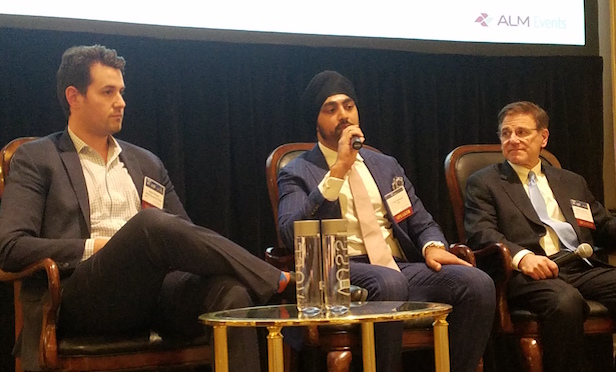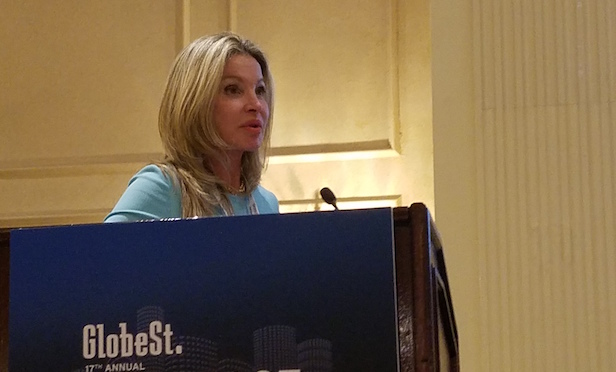 From left: Adam Scherr, Preet Sabharwal, William Lopriore, Jr./ Photo by Betsy Kim
From left: Adam Scherr, Preet Sabharwal, William Lopriore, Jr./ Photo by Betsy Kim
NEW YORK CITY—The GlobeSt.com Net Lease conference panel on 1031 exchanges shared their observations and advice for this tax deferral tool. Pamela Michaels, SVP, Asset Preservation, Inc., the panel moderator, asked what's the best strategy to do these deals with net lease properties?
Regional manager and counsel at First American Exchange Company William Lopriore, Jr., said, “Find a good broker, start early, get that diligence going, and understand the product that you are looking at.” He added that he has not seen many investors able to close within the 45-day identification deadline requirement.
A 1031 exchange allows full capital gains tax deferral on the sale of property when the proceeds are reinvested in purchasing property of equal value. The rules require the buyer to identify the replacement property within 45 days of selling the first property.
“On the principal side, we get multiple offers from buyers,” said Adam Scherr, net lease advisor at Sands Investment Group. Depending on the quality of the deal and the activity on it, his company's process involves providing the buyer a questionnaire. “It's really important to work with the principal to establish their actual interest. Are they working on a loan? Are they actually going to get it? How much time do they need? What are they doing in the market? What's happening in the transaction?”
Sands looks at all of those factors. “It can be very painful to have six people at the table and pick the one who 30 days in leaves you at the altar,” explained Scherr.
“A lot of people are trying to play fast and loose with the numbers,” he said and suggested added care in working with first time buyers in the market. The buyer should understand the underlying operations and if the real estate is quality—quality real estate is still selling, Scherr commented.
He also suggested moving as fast as possible to close the deal. “The market shifts. Obtain any legal or other relationships needed prior to the 1031 exchange to assure you can move as quickly as possible through the contract and towards the acquisition because you never know what's going to happen at the end of the day.”
Preet Sabharwal, founder and managing partner at SAB Group, added investors should have a strong focus. “What is your legal requirement? What is the absolute minimum lease term? What states will you not invest in? Are there taxes dictating acquisition rules that we should understand beforehand? Is depreciation part of your investment strategy? If you are going to deploy $10 million into an investment, how much depreciation do you have? Overall is this a tax efficient strategy?” he asked.
These are questions his company will use to help define a client's 1031 exchange “wish list.”
Sabharwal stated with 1031 exchanges approximately 65% of the money in the past 12 months has been coming out of gateway cities and core markets. “Buyers have high-level expectations of what they are going to be able to exchange into and I think there is a loan and supply problem,” he said.
He added there are a tremendous amount of new market participants and the institutional world is also now competing. Plus, there's a lack of product, specifically in the gateway and core markets.
 Pamela Michaels/ Photo by Betsy Kim
Pamela Michaels/ Photo by Betsy KimWith more institutional players and the heated competition, Michaels opined she would not be surprised to see reverse exchanges as a future trend in net lease. That's when an investor first closes on the replacement property. She pointed out that would be a way to lock in the net lease property with the exchange purchase.
However, Lopriore stated reverse exchanges can be difficult for several reasons including existing financing on the properties. Although he has had cash buyers, reverse mortgages would still require the ability to fund the purchase prior to selling the first property. So, in the current market this has not yet picked up in pace.
© Touchpoint Markets, All Rights Reserved. Request academic re-use from www.copyright.com. All other uses, submit a request to [email protected]. For more inforrmation visit Asset & Logo Licensing.







